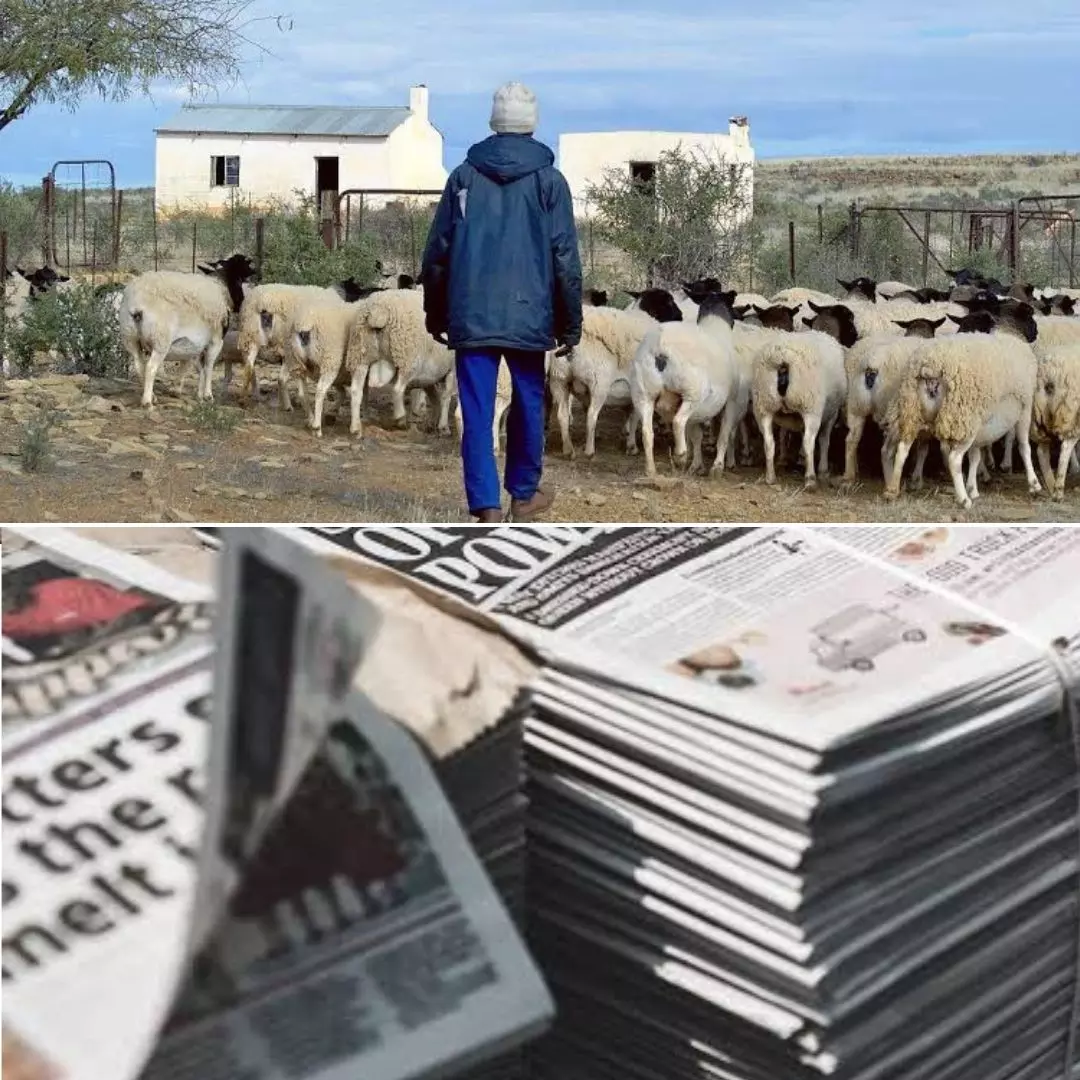Connecting Communities: This 90-Year-Old Journalist Hand-Delivers Newspapers In Remote Desert Of South Africa
Writer: Laxmi Mohan Kumar
She is an aspiring journalist in the process of learning and unlearning many things. Always up for discussions on everything from popular culture to politics.
Others/World, 5 Jan 2023 12:48 PM GMT
Editor : Jayali Wavhal |
She writes about gender issues, human interest, and environment.
Creatives : Laxmi Mohan Kumar
She is an aspiring journalist in the process of learning and unlearning many things. Always up for discussions on everything from popular culture to politics.
While many believe newspapers to be a dying business, this 90-year-old editor keeps news writing and the local language of Afrikaans alive by taking three local newspapers founded in the 1900s to the farmers of South African deserts.
Accompanied by a warm flask of coffee, a towel to shield himself from the scorching sun, and a radio, 90-year-old Frans Hugo sets off every Thursday to deliver newspapers in the remote deserts of South Africa. For over four decades, the senior editor has been travelling over 1,200 kilometres in his Fiat Multipla and taking news to people. At a time when news is going digital, and people believe newspapers to be a slowly dying field, Frans is viewed as one among the few bastions keeping the profession alive.
A 'Pompdonkie' Carrying Community News
For outsiders, Frans' business may seem rather odd and fascinating simultaneously. Hand-delivering local newspapers across the semi-arid Karoo region, Frans has dutifully been keeping the residents informed with news about their town and the outside world. He edits and takes the papers - The Messenger, Die Noordwester, and Die Oewernuus. All three papers written in Afrikaans (one of South Africa's 11 official tongues) were founded around the 1800s and 1900s.
Stacking the copies in his vehicle every Thursday, Frans leaves the small town of Calvinia at around 1:30 am and travels thousands of kilometres to take the news to the vast, parched back-country. A report by The New Indian Express quoted him joking, "I am like a pompdonkie," - a local name given to the nodding donkey pumps that helps extract groundwater from boreholes. He keeps this tradition alive every Thursday and says that he would probably only stop when he is physically unable to carry out the papers himself. The energetic nonagenarian, born Charl Francois Hugo in Cape Town, is today lovingly known to everyone as Frans.
Keeping A Language And Art Alive
According to a report by the New Indian Express, Frans had previously worked as a journalist in Cape Town and Namibia for almost three years before he decided to retire to the remote region of Karoo. Just as he had decided to take a break and relax finally, he was approached by a man in Calvinia who owned the printers and the newspaper. He asked Frans if he was interested in taking over the business.
Soon enough, the vintage office adorned by an old Heidelberg printing press and paper-cutting machines saw a new bastion who would carry on the legacy.
Frans' team prints about 1,300 copies a week, which he believes is a reflection of the "undying appetite for community news". They sell the paper for eight rands (about ₹38) and drop them off at shops, convenience stores, and the correspondents' homes. Their readers mainly constitute farmers living in remote, semi-arid regions, and they read the news that keeps them connected with the small communities living hundreds of kilometres from the desert. The papers also contribute immensely to keeping the local language of Afrikaans alive - something that westerners believe is spoken by only a few tens and hundreds.
Frans says that as long as he's around and has the strength for it, the people will continue receiving their weekly paper every Thursday. His daughter and son-in-law had briefly tried lending a hand in the business but soon got tired and quit. He now continues to be helped by his wife and a few assistants and says that he is not even a bit worried about the future, which is slowly getting consumed by the digital age. As a matter of fact, he ridicules people who read the news off their cellphones.
Despite the internet taking over the readerships of many mainstream newspapers, small communities like that of Karoo rely on this small newsroom, which looks like a museum of print.
Also Read: On National Press Day: Know Who Termed Media As Fourth Estate & How India Eulogised It Over Years
 All section
All section















